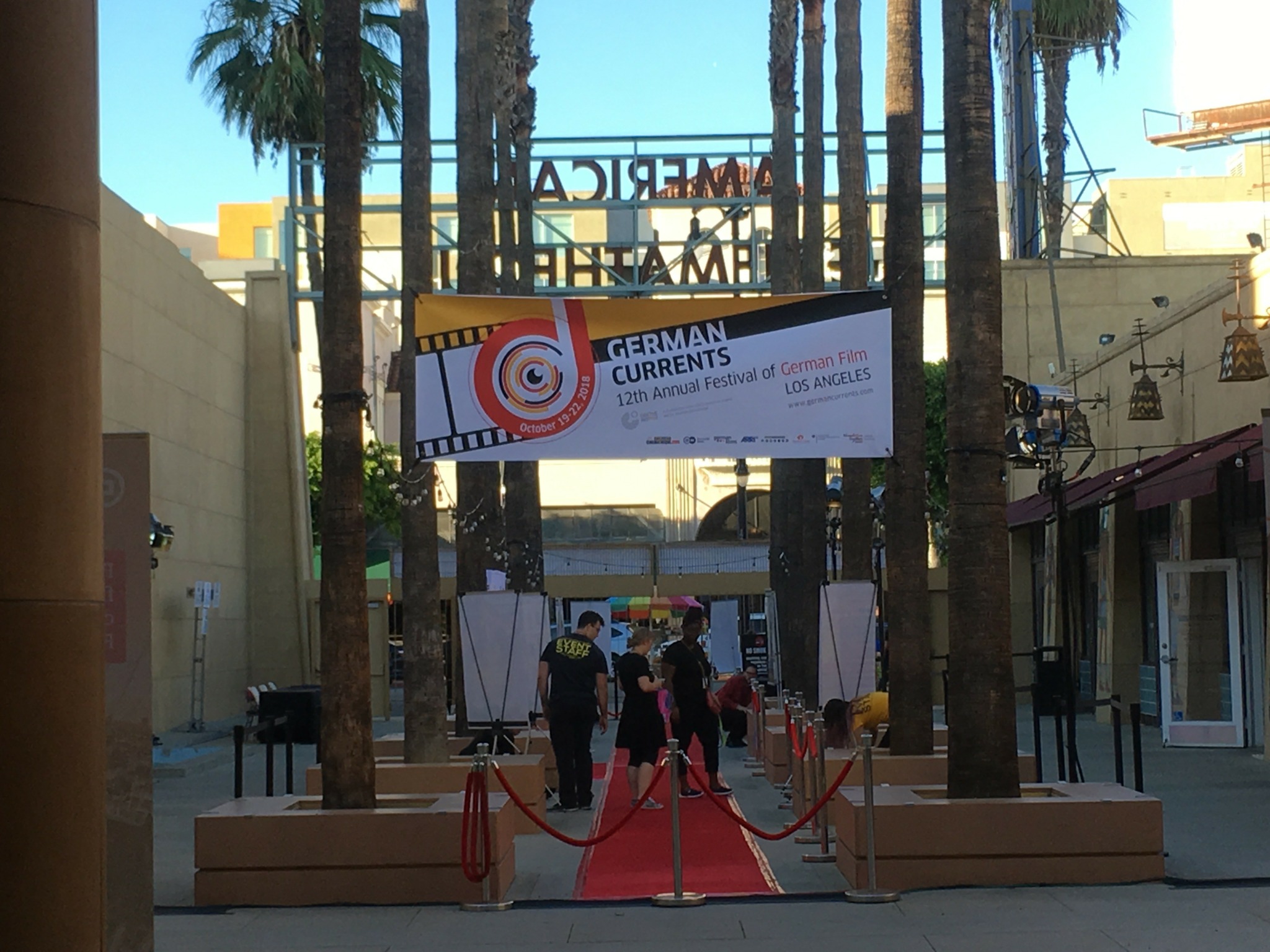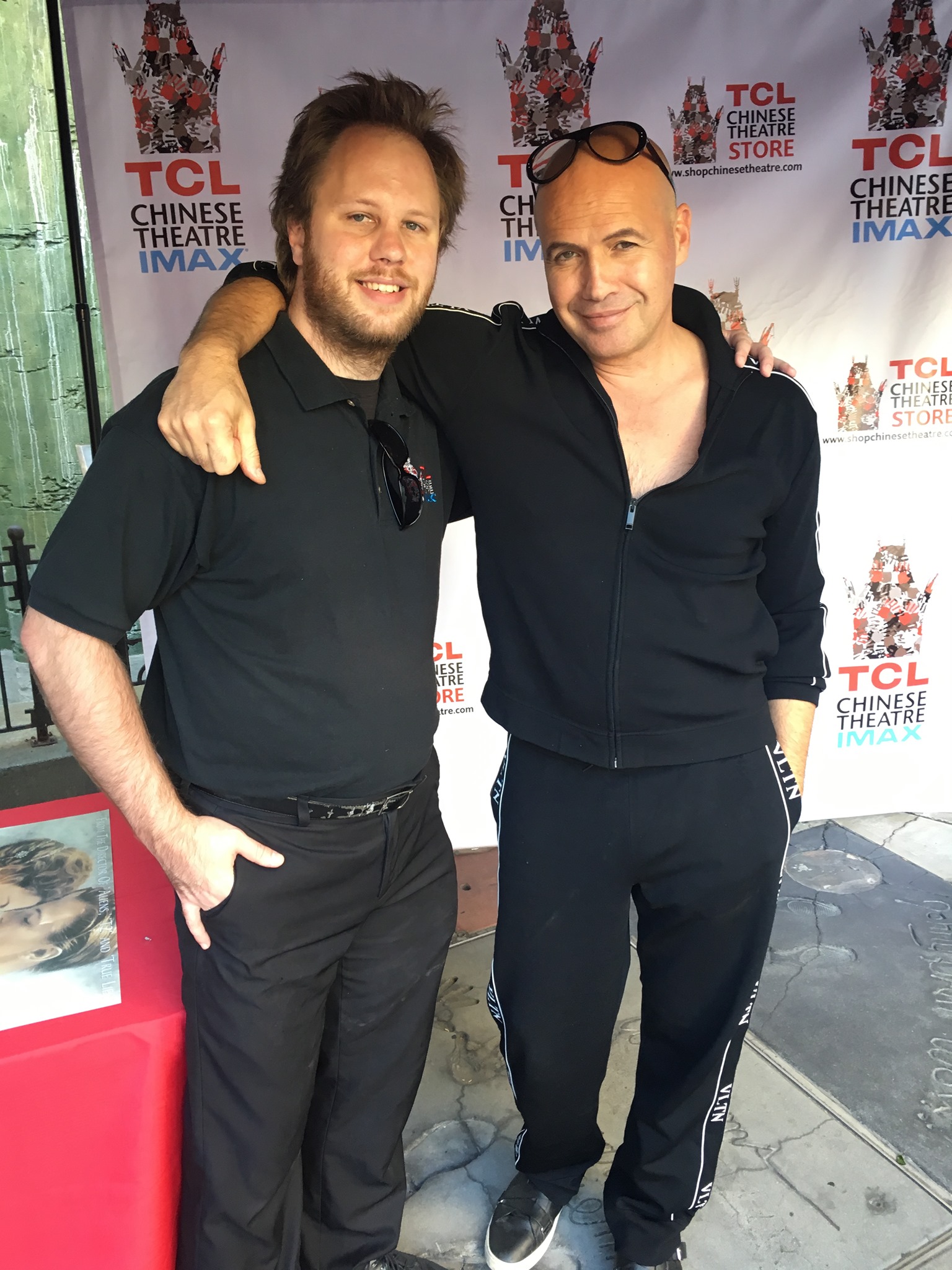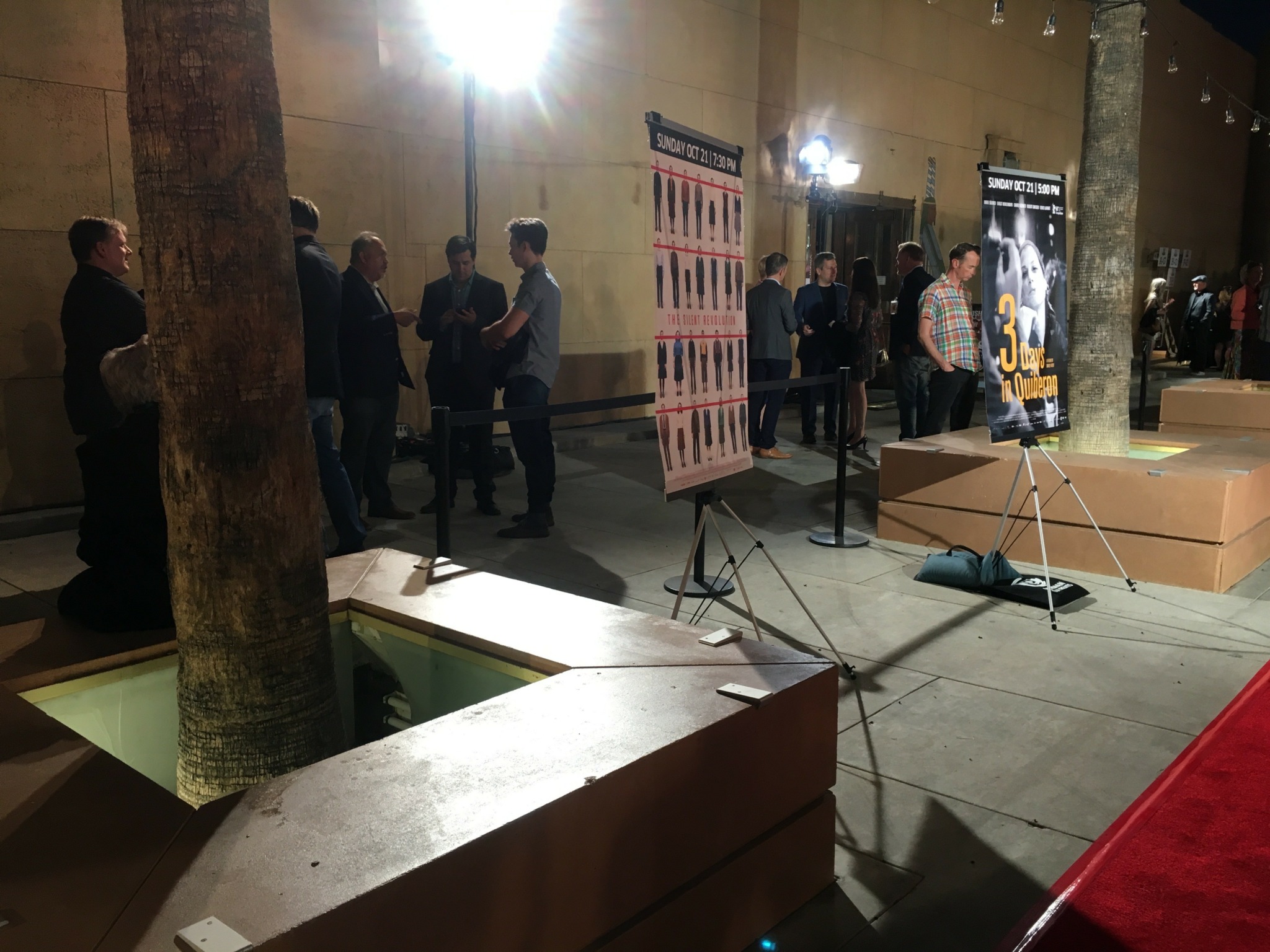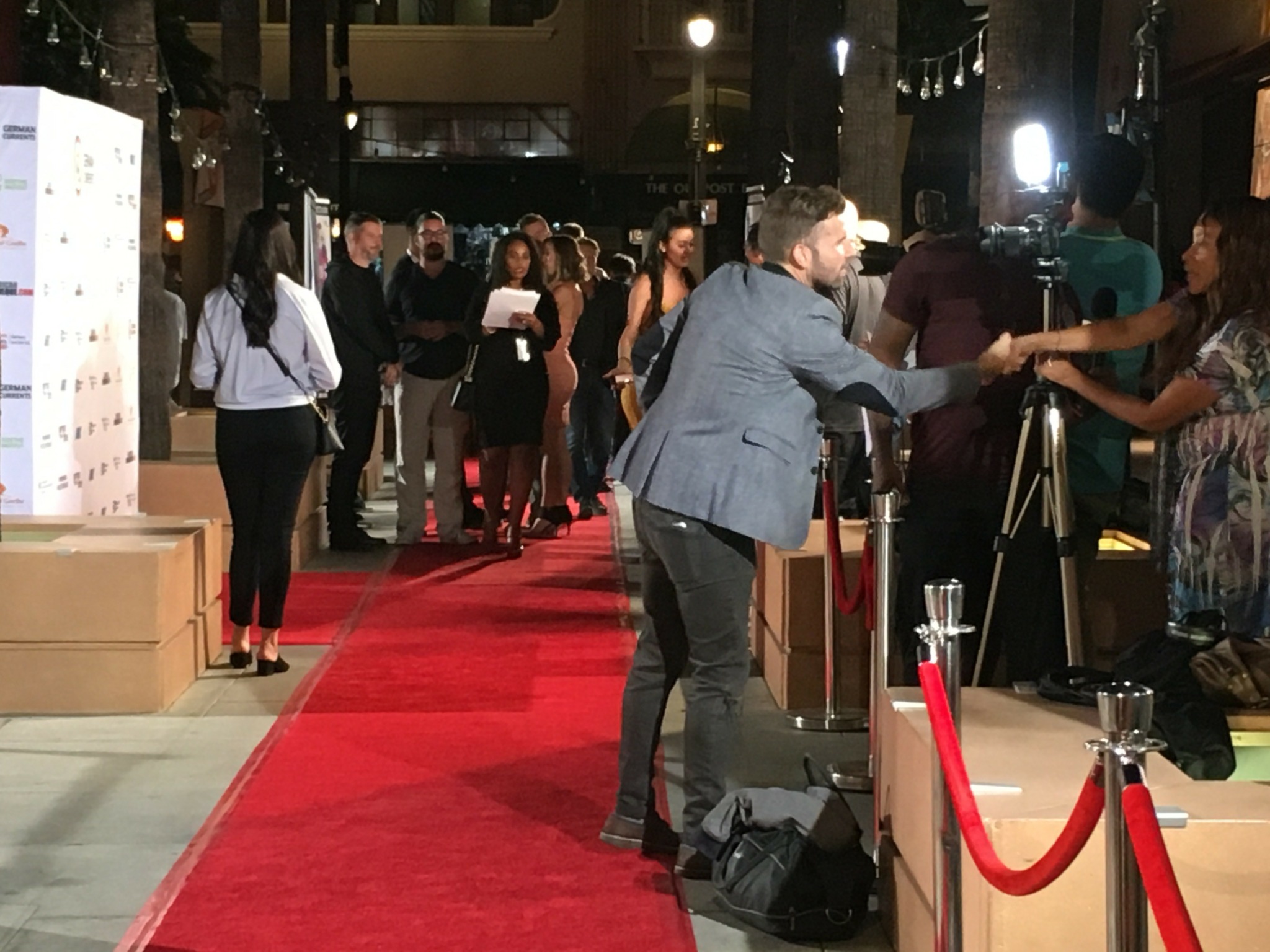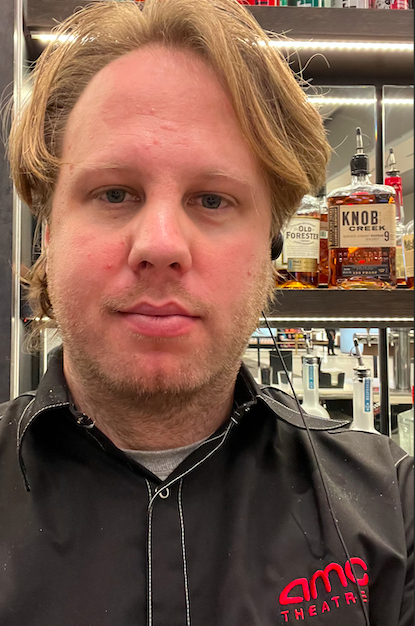We recently connected with David Krouse and have shared our conversation below.
Hi David , thanks for joining us today. What do you think Corporate America gets wrong in your industry?
Corporate America is suffering from two major issues: BRAND DILUTION and DEGENERATION.
When I was twenty-four, I did some online branding for what’s now the Good2Go Body Program. I drove to the Barnes & Noble in Burbank and pulled a book about branding off the shelf. I’ll never forget the definition it gave: “Branding is promises consistently kept.”
The movie industry’s brand is extremely diluted and has been for years. In 2022, the launch of ‘National Cinema Day’ offered $4 tickets to attract audiences back to theaters. Last year, when I tried to buy two tickets for Oppenheimer, added convenience fees raised the cost from $8 to $11.78, feeling like a broken promise. Any sort of fee is obnoxious in and of itself, but it showed just how broken the movie industry is. I didn’t even bother this year and don’t know when it was.
To cope with brand dilution, industry resorts to tactics like bread crumbing and serotonin hits instead of offering real substance. I’ve learned to distrust businesses that try to flood you with happy feelings and I think others have as well. I believe this is reflected in stock prices. AMC Entertainment Holdings, Inc., the largest movie theater chain in the world and they are flatlining. In 2015, AMC stock was worth $157.41, and it hit an all-time high of $551.38 in 2021. At the time of this interview, it’s at $4.54 per share (as of this interview).
Last year, I worked for AMC briefly. It was a terrible experience.
During the interview phase they seemed like the best option out of several companies I had interviews with and promised career progression etc . . . I interviewed at two AMC’s and the GM for one told me my answer’s for a management position “knocked it out of the park,” only he was concerned that I didn’t know AMC’s internal systems since he was running a Dine-In location. I agreed with him and took a position at a different location. I lasted around two months before quitting no notice.
Pre-COVID, AMC faced many issues. In 2017, during the opening of Star Wars: The Last Jedi in Burbank, a riot nearly broke out when the sound failed for the first ten minutes. The staff refused to restart the film and were rude to the understandably angry audience. The incident made headlines in several major outlets, including The LA Times and CBS News.
Post-Covid, AMC doesn’t appear to be any better.
During my brief time there, I saw numerous issues and filed no less than two separate ethics reports: I was told intoxication and over serving laws didn’t apply to people with drug highs; the HR manager told a timely applicant to leave and comeback in three hours because he was too busy for an interview he scheduled; the register frequently timed out, missing multiple sales on multiple days. During ‘Taylor Swift ERA’s Tour movie,’ management sold tickets for one theater, switched theaters, and resold the tickets again without refunding/voiding the original ticket holders. They then tried to not give any refunds when multiple people showed up for the same show and blamed Swift’s team. AMC Management didn’t seem to realize that that was consumer fraud. An armed guard caused an active shooter scare and nearly a SWAT response by hanging out in a theater, and the General Manager blew it off. Finally, I was illegally retaliated against for using sick leave under Colorado’s Healthy Families and Workplaces Act. The same night, the opening weekend of Beyonce’s ‘Renaissance’ movie, they scheduled me to work alone and didn’t stock the bar properly – with sold out shows in the biggest theater. The General Manager also commented over the staff radio in response to one of the bartender’s questions that he didn’t know if the minimum wage going up applied to tipped employees. I quit the next day. It was proof that in addition to not having a culture of ethics, AMC also doesn’t have a culture of business acumen – allowing your local management to sabotage an employee to hurt the business as a means of petty payback shows just how little regard they have for their shareholders money and Beyonce’s movie release.
I had no idea during all this AMC’s Executive Office was mess. AMC’s shareholders voted (unsuccessfully) to fire the entire Board of Directors. A North Carolina AMC location discriminated and threatened to arrest civil rights leader Rev. William J. Barber II for using his custom disability chair, and Beyonce almost pulled her movie after Adam Aron leaked it. In addition, I couldn’t help but notice major missed opportunities to bring in revenue. The McGuffin’s Bar created a drink for Taylor Swift called ‘The Rainbow Fantasy.’ It didn’t seem to occur to AMC that they could have probably doubled or tripled their profits had they made a Mocktail version of it substituting blue kool aid for alcohol and gave it to the the kids and sobor fans. For many, ‘The Rainbow Fantasy’ wasn’t even about the alcohol, it was about being part of something and having the full experience. So many moms and dads came with their young daughters. AMC had a full opportunity to make ALOT of money and fumbled it.
Three weeks later, AMC’s HR office called me and said they had voided the illegal write-ups and offered me my job back at either the same theater or another location. But they had taken no action to separate the problematic management team from the company. I initially accepted returning to work at another theater, only to find there was no open job there. After texting a couple of former coworkers, I discovered that the management team had also never corrected information about sick leave rights under the law after threatening employees who used it. In my situation, Denver Labor investigated and fined AMC $5,000 this year, for illegal retaliation. AMC was given the chance to have the fine waived and settle my right to sue them separately, if they settled and paid me the amount directly. I received a fairly obnoxious email from Kelly Schemenauer, AMC’s VP of Legal that admitted they were at fault, implied they had no idea that I had filed the complaints (my name was all over the determination and I had told AMC’s HR Department that I had filed the complaint in December 2023), and then offered a legal agreement in which they denied fault and were simply paying for me to go away. It included retaliatory clauses and a confidentiality clause that also violated Colorado’s Protecting Opportunities and Workers’ Rights Act. When I let Kelly know this was a no go, she fumed off and informed Denver Labor AMC would rather pay the fine and didn’t care that I retained my private cause of action to sue them. Denver Labor is also conducting an ongoing review of AMC’s payroll records – since they also didn’t provide paystubs with net pay and may have not fully paid minimum wage as required and I’ve filed an additional complaint with the Colorado Civil Rights Commission for AMC presenting me with an illegal agreement in violation of the Colorado POWR Act that is being reviewed.
I’d say AMC’s brand is one I no longer wish to support, but then again the couple times I went to the theater before I worked there, there wasn’t much to support as it was.
The other major issue in the movie industry and American society as a whole is DEGENERATION.
In its April 14, 1984 edition, The Nation ran an article titled “The Anti-Youth Movement,” critiquing MADD and the Reagan Administration’s passage of the National Minimum Legal Drinking Age Act, which coerced more than half the states to establish a 21-drinking age or lose federal funding. In 2006, USA Today published an article called “Teenagers: The Most Restricted Group in Society,” describing how teenagers at that time were subjected to twice as many legal restrictions as a felon or active-duty marine. Even if you’re a legal adult, if you don’t have a valid government ID, you face the same denials of personal freedom. And this is degenerating America and by extension every industry.
Young people are increasingly avoiding movie theaters, and the MPAA age rating system, along with America’s parentification culture, are major culprits.
I don’t think people understand just how abnormal our current time is in history. Most of human history prioritized initiating the next generation, not infantilizing them. It has only been since the 1980s that Baby Boomers, Gen Xers, and now older Millennials have selfishly tried to hoard society for themselves, spinning various narratives to legitimize their parentification of America.
The MPAA rating system exemplifies this issue. In 1996, Bill Clinton met with the National Association of Theatre Owners, urging them to require consumers to show photo IDs for R-rated movies. USA Today covered it in the April 17, 1996 article “Clinton: ID checks urged for R-rated films.” Theater owners have been driving off new audiences ever since. (They seem to overlook that Millennials, when coming of age, declined to vote for Hillary Clinton, who spearheaded anti-youth sentiment, in 2008 or again in 2016).
AMC refuses entry to anyone under 18 for R-rated movies without an ID for anyone who appears under 25. Their policies also prohibit a legal adult from chaperoning someone under 18 if the adult is over 18 but under 21. The rationale is illogical. AMC bans teenagers from R-rated films while allowing parents to take young children, with enforcement varying by hour. This inconsistency highlights flaws in the MPAA rating system. If movies were truly harmful, they would be banned outright. Additionally, treating teenagers and young children the same is inappropriate and as we are seeing with the Millennials, Gen Z and Gen Alpha, developmentally harmful. If a child can’t watch a film alone, they should be with their parents, and if not, parents clearly consider them old enough to go alone. This is parentification—a form of neglect where parents restrict kids from activities that might inconvenience them. Instead of helping the next generation find their footing, Gen X and Millennial parents demand the kids stay home and then whine about them being antisocial. These policies come from generations that expected their parents to provide emotional security and now expect their kids to do the same. It’s turned America and going to the movie theaters into the Soviet Union, reminding me of a scene from Ayn Rand’s novel ‘We the Living.’ It’s also deadbeat parenting.
I’ve even heard middle-aged theater goers say, “I’m glad they don’t allow anyone under 18 in.” Really? That’s a cancer mentality, driving off the healthy new cells so that the tumor can swell and eventually kill its host. And if AMC’s stock prices are anything to go by, the movie industry is in Stage 3 (if we’re lucky).
And who is the MPAA Rating Board? A group of anonymous people wielding a monopoly on alot of American life. As we have seen over the years, different families have different feelings and values about what is appropriate at what age. And we don’t know who these people are. What are their values, beliefs, political affiliations, religious affiliations? What causes do they donate to? Do they take money from activist organizations or political action committees? Are they Card-carrying members of the NRA National Rifle Association? Do they donate to NARAL (National Abortion Rights Action League) Pro-Choice America or the NRTLC – National Right to Life Committee? Are they involved with Focus on the Family, GLAAD – Gay & Lesbian Alliance Against Defamation? Do they take money from MAGA Inc, or DSA – Democratic Socialist of America? And what foreign influences are being exerted? Linda Sun, a former aid to two New York Governor’s has been arrested as an agent of the Chinese Government. We know that Vladimir Putin and the Kremlin operate a disinformation machine globally. Whose to say that a group of anonymous individuals wielding immense power aren’t at the very least what we called “useful idiots” during the Cold War. Do they file reports with the Federal Trade Commission? Do they own stock in the studios whose product they are rating OR in companies that could be financially impacted by cultural censorship? We don’t know.
And we should. Allowing the creation of the MPAA Age Rating System was deadbeat parenting enough. Allowing an anonymous group of strangers to brainwash and manipulate American culture according to whatever personal agenda they, or whoever influences them, have is criminal.
The movie industry can claim their hands are tied, but that too isn’t true.
During Covid, Aron Adam’s reopened theaters and pushed back against mask mandates. In the 1990s, Hollywood successfully extended the Copyrights Act. With Citizens United, the Movie Industry could easily get rid of the MPAA System and the people running and take a stand against this anti-youth culture if they wanted too.
So far they haven’t. I suppose that’s not entirely surprising looking at the 2024 Presidential Election. Both Donald Trump and Kamala Harris could easily tip the election in their favor by announcing they will repeal the National Minimum Legal Drinking Age Act, and call to end the MPAA Age Rating System – remeding mistakes of Ronald Reagan and Bill Clinton. FDR won an un-precedent four terms as President and Super-Majorities in Congress by repealing Prohibition and protecting Labor. More to the point, there was no drinking age when FDR repealed prohibition and many laborers were teenagers and twenty-year olds. His programs were not for a bunch of senior citizen’s. And someone who was 14 in 1932, was legally old enough to vote in 1940 and 1944. Eleanor Roosevelt supported the American Youth Congress. So far neither Donald Trump, Kamala Harris, Tim Walz or J.D. Vance have been bright enough to do so.
Let’s face it: if Movie Theaters do not change course, they won’t survive much longer. They can either resurrect movie theaters as American teenagers third space (which they were when they made money), or they can dwindle and die – at least for the time being until a future generation takes action.
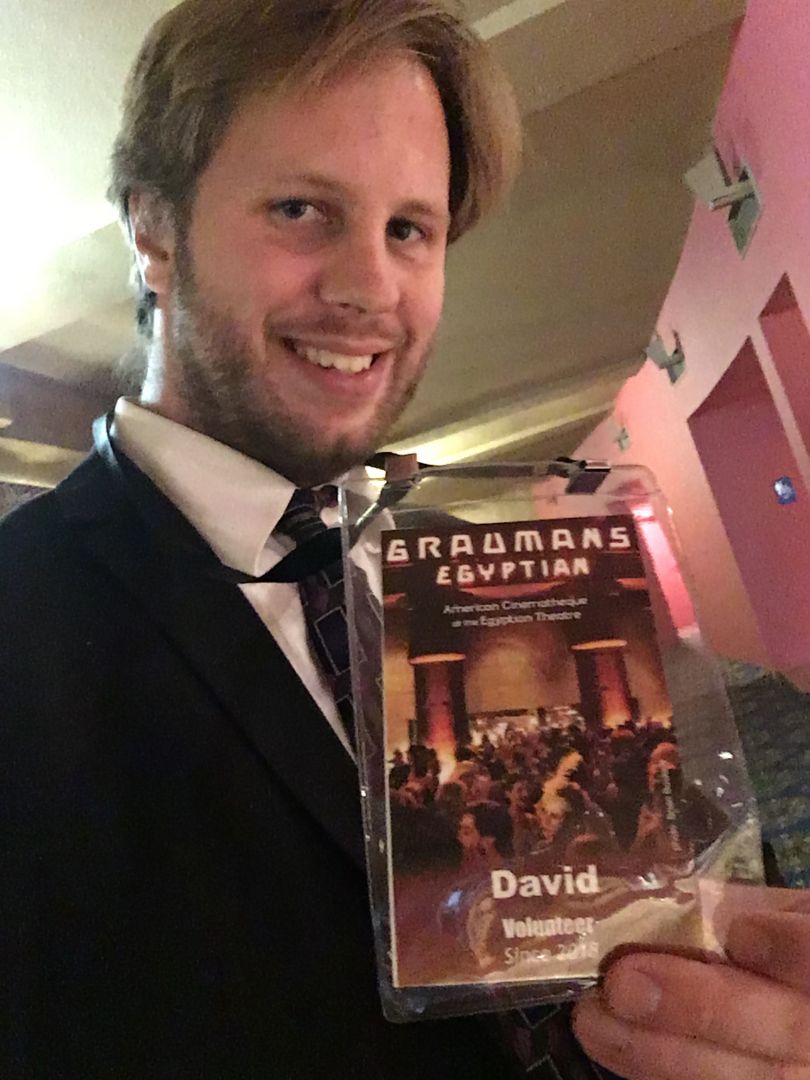
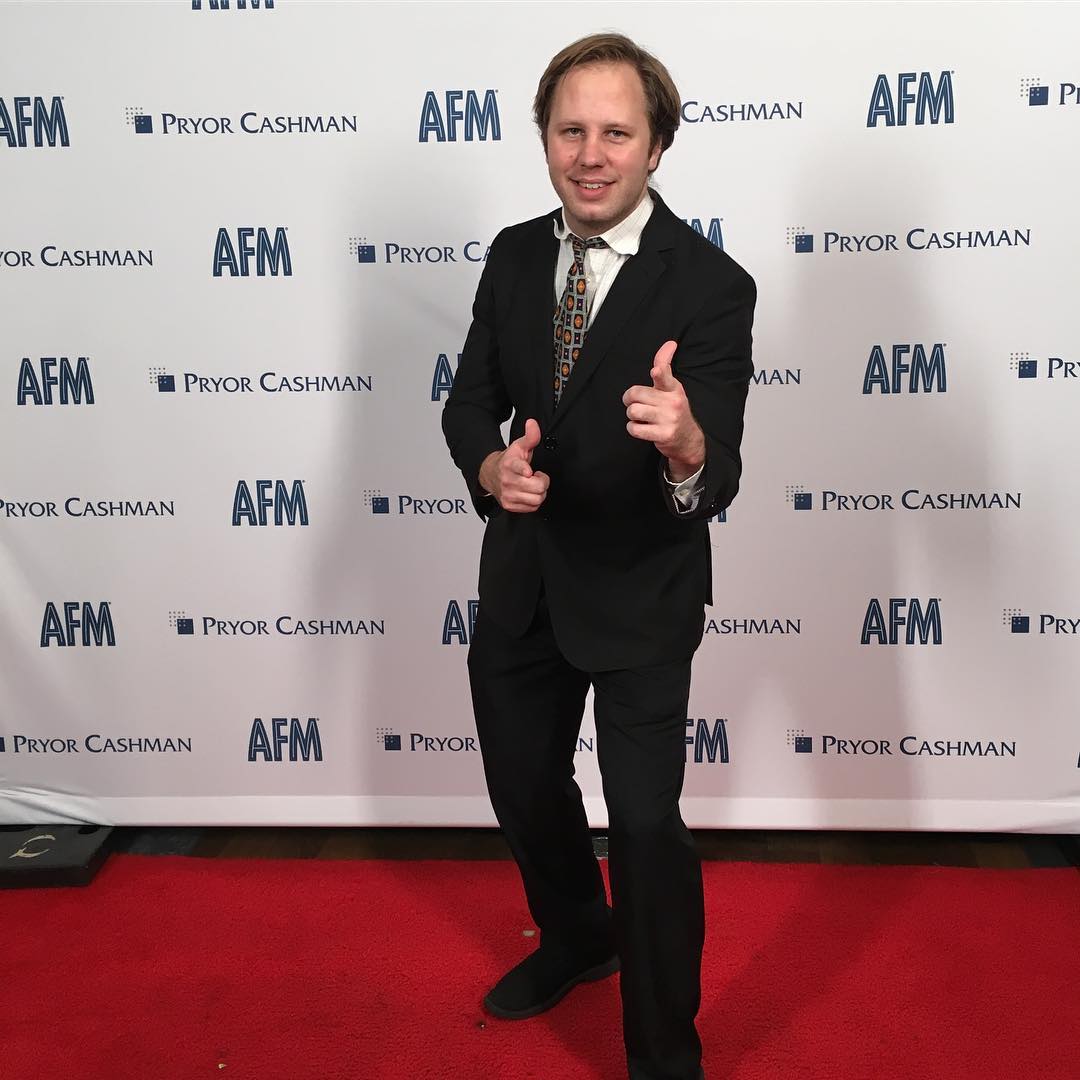
Awesome – so before we get into the rest of our questions, can you briefly introduce yourself to our readers.
I’ve worked in film exhibition for a decade in Los Angeles and Denver. The only year I didn’t work in exhibition at all was 2021. I’ve worked with The Valley Film Festival, The American Cinematheque, Laemmle Theaters, DTLA Film Festival, Denver Film Festival, Cinelounge, TCL Chinese Theater, and as mentioned AMC Theaters.
I’m a wild card. One of the things I do when I work, whether it’s staff, management or producer, is I try to raise the level of performance in the job I’m doing. I figure out what the bare minimum is and then see how far I can scale my performance upwards.
An example of this that I’m working on right now is an Encore Screening of ‘Ciure’ the winner of The Valley Film Festival’s 10 Degrees Hotter Juried Foreign Film Award on October 22 at Los Angeles Valley College. This isn’t the first time The Valley Film Festival has done a campus screening. In 2017, we produced the world premiere of ‘Jack and Cocaine’ for Kash Hovey at what was then Columbia College Hollywood. We also did a showcase of Persian short movies, and different panels there and at the NoHo Art Institute and New York Film Academy. But we’ve never done anything with or at Los Angeles Valley College before. This is also the first time doing a screening at a Junior College and non-Film School. The LAVC Media Arts Department is also not involved in the screening. Our on campus sponsor and partner is the LAVC Rainbow Pride Center. Faculty support for the movie came from the Language Departments and LBTQIA+ studies.
At the bare minimum all we have to provide is a movie night and snacks. But I recognized right away the significance of what was happening the minute I saw Rainbow Pride Center Counselor Natalie Guerrero’s email – the movie was growing legs in the Los Angeles market. It had had its Los Angeles Premiere at The Valley Film Festival, won the 10 Degrees Hotter Award from a jury of VFF Alumni Filmmakers, and now was being booked at a college with the coveted 16-24 age segment audience in the San Fernando Valley. Since getting the greenlight from the filmmakers, I’ve been working on the screening since Labor Day weekend and the response so far has been great. Press Releases with solid open rates, coverage in multiple newspapers in the San Fernando Valley, mention in media outlets, social media pledges from people in the Entertainment Industry who remembered Premiere’s I’d produced for them years before, listings in Community Calendars across Los Angeles.
Did we have to go this big? No. Did I want to? Of course.
(You are reading about the screening in this interview after all).
And it shows for others. While I was promoting the ‘Ciure’ screening, Vera Mijojlić (who I reached out to as one of the Indie Film Insiders to promote the screening on their socials October 15, along with Kash Hovey and Dimitri de Clercq) asked if I could do some outreach for the South East European Film Festival’s First Look Screening of Tudor Giurgiu’s ‘Libertate’ (Freedom) at Laemmle Encino Town Center 5 on October 23. I checked around and that screening is now also up on KTLA and the Santa Monica Daily Press Community Calendar’s and some other newswires. (Which again, you’re now reading about it).

Can you share your view on NFTs? (Note: this is for education/entertainment purposes only, readers should not construe this as advice)
When I first heard about NFT’s I couldn’t believe anyone was dumb enough to fall for this. This was the original Ebay scam. I remember an episode I think of Judge Judy where a woman was being sued because she was selling pictures printed on printer paper of some toy like Tickle-Me-Elmo or something of that kind, and people were furious because she’d put “Picture only” in tiny font at the bottom of the ad. They expected a toy for their kids and this piece of printer paper shows up.
What I never understood about NFT’s is, sure there might be some value of say a picture from Tom Cruise’s camera roll, but it doesn’t have any intellectual property rights that don’t already exist. You already purchase a digital copy of of media when you watch movies, television, eBooks, etc . . . you’re not getting anything new. Also the idea of registering them for added security concerns me. It give’s alot of power to shadowy organizations and again anonymous people to censor alot the internet. We already have digital take down claims for pirated intellectual property.
I think the real value with them will not be NFT’s themselves, but the ability to authenticate something, especially in a world of deepfakes and AI replications. So there might be that. But I don’t see any real monetary value in NFT’s, unless what’s in the NFT in and of itself has monetary value.
I think NFT’s, the MetaVerse, Crypto-Currency, etc . . . is all a bridge-to-nowhere.
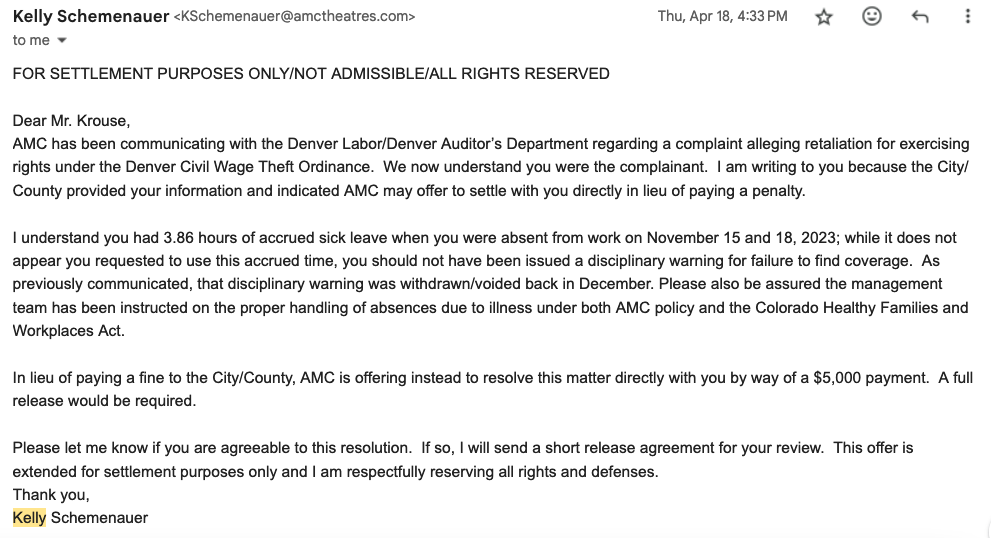
Are there any resources you wish you knew about earlier in your creative journey?
I don’t know whether they are still relevant or not, but I’ll mention a few.
The American Cinematheque, the AFI Film Festival, and The American Film Market. I vaguely knew about them after being in Los Angeles for five years. It wasn’t really talked about or promoted in film academia or the micro-budget film circles I was in for a few years. I mean I knew of it, but not really. I worked with a few people at a temp job who’d worked AFM and later knew someone who worked AFM for a couple months, but that was about it.
The first AFI Film Fest Event I went too was a panel on HDR at The Roosevelt Hotel. I had got to a similar panel on the subject at Technicolor after I saw it on Twitter and a Post-Producer and I were going to meet there. The AFI HDR panel was great. Free wine! Free food! They explained the new technology! And I got the business cards for Shane Mario Ruggieri, CSI, a colorist who later agreed to sponsor a discounted color package as a prize for the Valley Film Festival 10 Degrees Hotter Award Winners!
At the American Cinematheque I got to do several cool screenings. 60th Anniversary Vertigo with Kim Novak at Grauman’s Egyptian Theatre. Godard Mon Amour with Michel Hazanavicius at the Aero Theatre.
I never ended up working the American Film Market, since I was working The Valley Film Festival in November 2018 (which I had scheduled to be along side AFM) but we did drop in on some distributors we knew there which was great. Working at the Chinese Theatre did allow me though to work during the AFI Film Festival and multiple World Premieres, including ‘The Aeronauts’. I was hired to work at the Dolby during Covid (but we didn’t know everything would be shut-down for at least a year).
Looking back, I really wish I had not wasted time taking film classes and invested it going to the AFI Film Festival panels, volunteering for the American Cinematheque and working the American Film Market. It would have been a much better use of my time and my career would be five years longer than it is. I’ve done alot, but there was so much more that I could have done. And I would have learned so much more from people who were actually doing working in the film industry. I encourage anyone with aspirations to start working as soon as possible and get as much hands-on experience as possible. For those that live in Los Angeles they’d better hurry, the American Film Market just left California for Las Vegas.
My favorite Film Exhibition Experience so far is still the Opening Night of the German Currents Film Festival at Grauman’s Egyptian Theater.
Contact Info:
